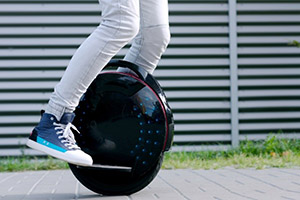 While carshares and rideshares have dominated the transportation scene for much of the last decade, they aren’t the only solutions arising in this fast-paced age of new mobility. Here are some mobility startup ideas you might not have thought about, and how you can make them into a thriving business.
While carshares and rideshares have dominated the transportation scene for much of the last decade, they aren’t the only solutions arising in this fast-paced age of new mobility. Here are some mobility startup ideas you might not have thought about, and how you can make them into a thriving business.
Bikes
The Pacific Northwest — and Oregon specifically — is no stranger to bicycles. In fact, the bike is so synonymous with cities like Portland and Seattle that popular depictions of the area heavily feature rampant cyclists. However, not everyone who lives in the Pacific Northwest owns a bike or has access to a working one when they need it, so bike-share startups are increasing in number in urban environments. To make your bike offerings a bit different from the established competition, you might consider sharing electric bikes, which make it easier to get up and down the hills common in Cascade cities, or you can offer bikes fitted with accessories, like trailers or child carriers.
Scooters
Love them or hate them, you best be certain that scooters have grown up like weeds across the Pacific Northwest. While scooters have been seen as piteously uncool in the past, the simplicity of accessing and riding scooters has made them popular with the younger crowd. Unlike bikes and skateboards, scooters don’t require much skill to ride, and their advanced geolocation tech means users can pick them up and drop them off wherever, not only at determined docks. Even better, because scooters are so new, it is possible to unseat an established scooter brand like Bird or Lime with the right business tactics.
Skateboards
Even as scooters are losing their stigma, plenty of people prefer the indisputable coolness of skateboards. As yet, no big brand has established itself in this realm, so you might use a mobility platform to develop the first major board-share. Like bikes, skateboards would likely be best picked up and returned to a dock. You can also motorize your boards to make them faster and easier for non-skaters to use.
Hoverboards
Unfortunately, what we call hoverboards don’t actually hover; they merely self-balance, making users feel like they are floating through air. Hoverboards are easily the newest transportation method and thus also one that most people have some curiosity toward. While the hoverboard’s cousin, the Segway, has been relegated to dorky city tours and the least-intimidating cop patrols, you might market the hoverboard as a revolutionary way to get around — one that is easier and more futuristic than the skateboard and cooler than the scooter.
 Unicycles
Unicycles
Unicycles could be the next big transportation trend. Before you laugh, you might want to consider the benefits of unicycles: They are smaller than bikes, making them easier for users to handle, and they tend to offer a higher view of the road than scooters and skateboards. What’s more, the traditional unicycle isn’t your only option; you can create a uni-share using gyroscopic unicycles like the Segway One S1, the SoloWheel Xtreme, the Swagtron SwagRoller, the Uno Bolt and more.
Self-driving Vehicles
Believe it or not, carshares involving self-driving vehicles — which could be released onto the market in the Pacific Northwest any year now — have as much in common with mobility solutions like bikes and scooters as they do with traditional cars. That’s because autonomous vehicles will behave unlike any transportation solution currently extant. Self-driving cars are more like robot rideshares than shared transportation; they will likely be in continuous use, picking up and dropping off users, so they require special care from business owners and operators. Before you begin building a self-driving carshare, you might want to experiment with other mobility solutions, so you better understand the legal and financial roadblocks when you jump into autonomous vehicles.
Mobility is a major issue, especially in the Pacific Northwest, which has grown up in the age of cars. By offering other solutions to commuters, you can fill a big need and develop a business that can move with the times.



